detail profile claude bolling
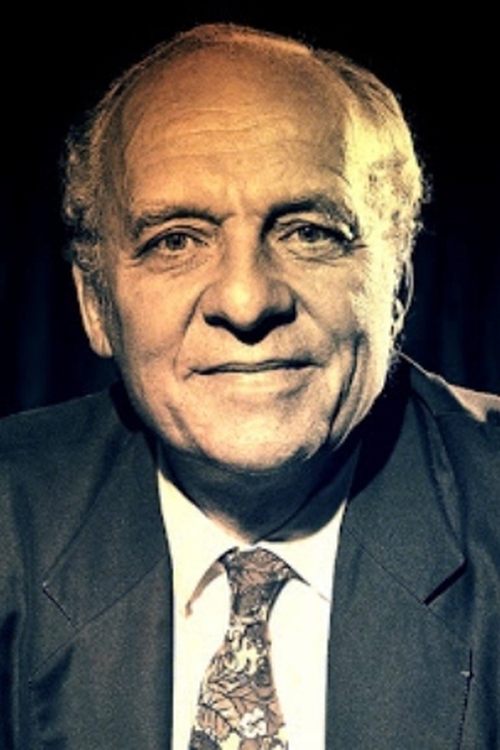
Riwayat Hidup
Claude Bolling (10 April 1930 – 29 December 2020), was a French jazz pianist, composer, arranger, and occasional actor.
He was born in Cannes, France, and studied at the Nice Conservatory, and then in Paris.
A child prodigy, by the age of 14 he was playing jazz piano professionally, with Lionel Hampton, Roy Eldridge, and Kenny Clarke.
Bolling's books on jazz technique show that he did not delve far beyond bebop into much avant-garde jazz.
He was a major part of the traditional jazz revival in the late 1960s, and he became friends with Oscar Peterson.
He wrote music for over one hundred films, including a 1957 documentary about the Cannes Film Festival, and films such as The Hands of Orlac (1960), World in My Pocket (1961), Me and the Forty Year Old Man (1965), Atlantic Wall (1970), Borsalino (1970), To Catch a Spy (1971), Le Magnifique (1973), Borsalino & Co.
(1974), Flic Story (1975), The Passengers (1977), Silver Bears (1978), California Suite (1978), Jigsaw (L'Homme en colère) (1979), The Awakening (1980), Willie & Phil (1980), Three Men to Kill (1980), The Bay Boy (1984), He Died with His Eyes Open (1985), Try This One for Size (1989) and Chance or Coincidence (1998).
Bolling was also noted for a series of "crossover" collaborations with classical musicians.
His Suite for Flute and Jazz Piano Trio with Jean-Pierre Rampal, a mix of Baroque elegance with modern swing, has been a top seller for many years, and was followed up by other works in the same vein.
It was particularly popular in the United States, at the top of the hit parade for two years after its release and on the Billboard top 40 for 530 weeks, roughly ten years.
Following his work with Rampal, Bolling went on to work with many other musicians, from different genres, including guitarist Alexandre Lagoya, violinist Pinchas Zukerman, trumpeter Maurice André, and cellist Yo-Yo Ma.
He also worked with, and performed tributes to many others, including Lionel Hampton, Duke Ellington, Stéphane Grappelli, Django Reinhardt, and Oscar Peterson.
Bolling was also notable as the composer of the Lucky Luke animated features Daisy Town (1971) and La Ballade des Dalton (1978).
Source: Article "Claude Bolling" from Wikipedia in English, licensed under CC-BY-SA 3.
0.
Info Pribadi
Peran Yang Di Mainkan Claude Bolling
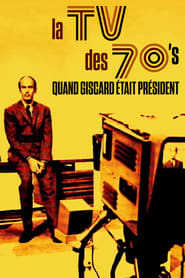 In May 1974 Valry Giscard dEstaing became...
In May 1974 Valry Giscard dEstaing became...La TV des 70's : Quand Giscard était président 2022
In May 1974, Valéry Giscard d'Estaing became President of the Republic and wanted to bring about a new era of modernity. One of his first decisions was to break up the ORTF with the creation of three new television channels: TF1, Antenne 2 and FR3. Three new public channels but autonomous and competing. It is a race for the audience which is engaged then, and from now on the channels will make the war! This competition will give birth to a real golden age for television programs, with variety shows in the forefront. The stars of the song are going to invade the living rooms of the French for their biggest pleasure. This unedited documentary tells the story of the metamorphosis of this television of the early 1970s, between freedom of tone, scandals, political intrigues and programs that have become mythical.
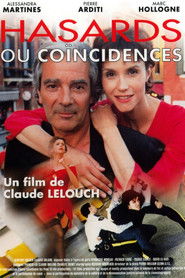 Once a successful dancer Miriam has...
Once a successful dancer Miriam has...Chance or Coincidence 1998
Once a successful dancer, Miriam has abandoned her career to bring up her son, Serge, after her boyfriend walked out of her.
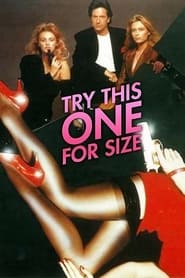 The story based on a novel...
The story based on a novel...Try This One for Size 1989
The story (based on a novel by James Hadley Chase) concerns the efforts of the genial and deceptively tentative Lepski (Michael Brandon), an insurance company detective, to track down a valuable medieval Russian icon, which was stolen by Bradley (David Carradine), a master thief.
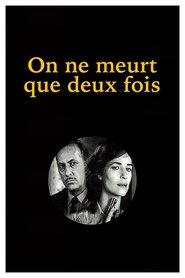 Police Inspector Staniland is investigating the...
Police Inspector Staniland is investigating the...He Died with His Eyes Open 1985
Police Inspector Staniland is investigating the death of a pianist. While conducting his investigation and looking through the victim's apartment, he meets Barbara, the mistress of the murder victim. Barbara confesses to the crime, but Staniland, based on his observations and experience, does not believe her. He then sets out to find the truth.
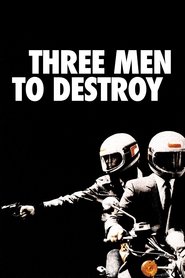 A man helps the victim of...
A man helps the victim of...Three Men to Destroy 1980
A man helps the victim of an auto accident, not realizing that the man has actually been shot. The men who shot him are now after the man who helped him, in order to eliminate him as a potential witness. Soon they are killing everyone he even comes in contact with in order to get him.
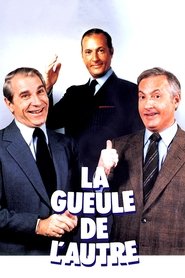 Martial Perrin is the president of...
Martial Perrin is the president of...The Other One's Mug 1979
Martial Perrin is the president of a right-wing political party which is gearing itself up for a forthcoming election. When he learns that a notorious criminal named Kraus has escaped from prison, Perrin panics and goes into hiding. His deputy, Constant, hires Perrin’s cousin, Gilbert, an actor who is a perfect double of Perrin, to replace him. What Gilbert does no know is that the killer Kraus is bumping off the people who were implicated in the affair for which he was arrested, and that Perrin is next on his list.
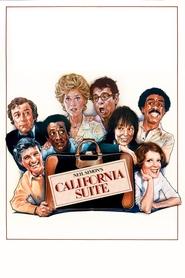 The misadventures of four groups of...
The misadventures of four groups of...California Suite 1978
The misadventures of four groups of guests at the Beverly Hills Hotel.
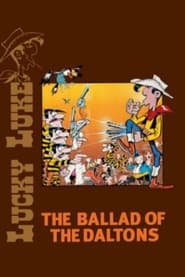 The story opens in a Western...
The story opens in a Western...Lucky Luke: The Ballad of the Daltons 1978
The story opens in a Western saloon, where a young musician with a banjo begins to tell a tale of Lucky Luke and his sworn enemies the Dalton brothers: Joe, William, Jack and Averell. Luke has, once again, as he has done many times before, thrown the four outlaws into jail. The prison is also the abode of a guard dog named Rin Tin Can (Rantanplan in the original French language version).
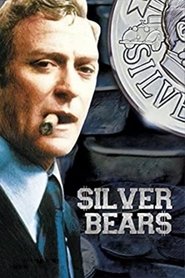 Financial wizard Doc Fletcher is sent...
Financial wizard Doc Fletcher is sent...Silver Bears 1977
Financial wizard "Doc" Fletcher is sent by crime boss Joe Fiore to buy a bank in Switzerland in order to more easily launder their profits. When he arrives, Fletcher finds that the bank, acquired by his associate Prince di Siracusa, consists of some shabby offices above a restaurant. To make up for this, the Prince suggests that Fletcher invests in a silver mine owned by Shireen and Agha Firdausi. This solves one problem, but the mine also attracts the attention of some of the most powerful people in the silver business. Fletcher must pull out all his wheeler-dealing skills in order to keep hold of everything he's worked for, in the process romancing a banker's discontented wife.
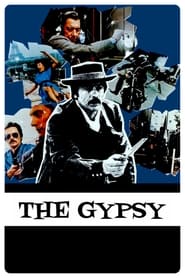 Two thieves Hugo Sennart and Yan...
Two thieves Hugo Sennart and Yan...The Gypsy 1975
Two thieves, Hugo Sennart and Yan Kuq, wanted by the same police inspector, cross paths by chance.
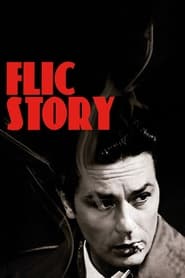 The film story depicts Emile Buisson...
The film story depicts Emile Buisson...Flic Story 1975
The film story depicts Emile Buisson, following the death of his wife and child, escaping from a psychiatric institution in 1947 and returning to Paris. Buisson, who three years later would become France's public enemy number one, begins a murderous rampage through the French capital.
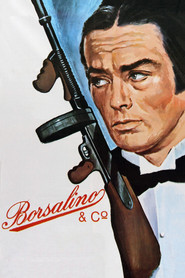 Marseille Heaps of flowers and funeral...
Marseille Heaps of flowers and funeral...Borsalino and Co. 1974
Marseille. Heaps of flowers and funeral wreaths... "A man who no longer defends his colors is no longer a man."
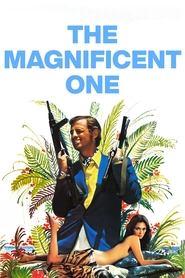 A writer of pulpy book series...
A writer of pulpy book series...The Magnificent One 1973
A writer of pulpy book series in which he's the hero and his beautiful English roommate is the love interest attempts to finish his new book in time at the publisher's demand.
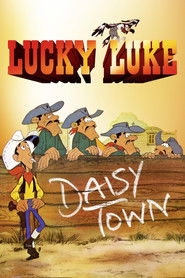 When the members of a caravan...
When the members of a caravan...Daisy Town 1971
When the members of a caravan of pioneers find a daisy growing in the middle of the desert they decide to stop there and to build their town on this very spot. Houses soon spring up like mushrooms, immediately followed by a bank, a saloon, a prison, etc. Daisy Town is born. Unfortunately a city does not go without its bad boys and the peaceful place is soon turned into a lawless place. To restore law and order, a lawman is needed. Lucky Luke, the cowboy who shoots faster than his shadow, will be this man: all the villains had better watch out!
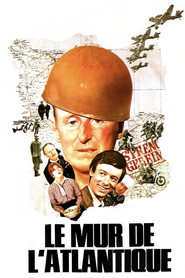 1944 Lon Duchemin owns a restaurant with...
1944 Lon Duchemin owns a restaurant with...Atlantic Wall 1970
1944. Léon Duchemin owns a restaurant with his sister. His clients are Germans, Résistance et black marketeers. Léon unwillingly joins the Résistance when a British pilot is shot down and hides in his attic and, through a series of mishaps, he accidentally steals the plans for Hitler's V1 missiles.
 Marina and her boyfriend have an...
Marina and her boyfriend have an...The Sensuous Assassin 1970
Marina and her boyfriend have an argument while on a trip in France. While driving with the car among the cliffs, he starts speeding and the car falls into the sea. Marina can jump out of the car, but her boyfriend seems to be drowned. She gets to know his brother and he falls in love with her. But why does she always feel watched? What reasons are behind her strange behaviour anyway? Did she really murder her boyfriend? But is he dead anyway?
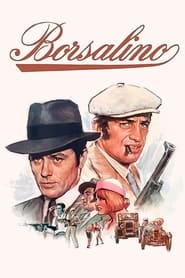 In 1930s Marseilles two smalltime crooks...
In 1930s Marseilles two smalltime crooks...Borsalino 1970
In 1930s Marseilles two small-time crooks decide to join forces when they meet while brawling over a woman. Starting with fixed horse races and boxing matches, they soon find themselves doing jobs for the local gangster bosses. When they decide to go into the business for themselves, their easy-going approach to crime starts to change.
 The cowboy Lucky Luke tracks the...
The cowboy Lucky Luke tracks the...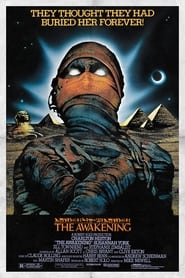 When a British archaeologist violates an...
When a British archaeologist violates an... Romain Dupree arrives to Montreal from...
Romain Dupree arrives to Montreal from...